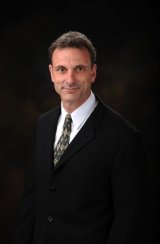Sustainable Materials Management (SMM) Web Academy Webinar: Management Challenges for Lithium Batteries at Electronics Recyclers
On this page:
Description:
Thursday, April 5, 2018 from 1:00 p.m. to 2:30 p.m. EST.
Lithium batteries are becoming more prevalent in American homes and businesses as battery-containing electronic devices like laptops, tablets, smartphones and headphones become integral to our daily lives. As these devices become smaller, thinner and more portable, the batteries in them are beginning to present new challenges to electronics recyclers who need to be able to remove them in order to repair and refurbish products or recover valuable materials from them. This webinar will be presented as a panel discussion on the problems electronics recyclers are facing, recommended best practices for removal and transportation of lithium batteries from electronics and suggestions for how manufacturers and recyclers can work together to solve this problem. This webinar is a follow up to the March 22 webinar on problems presented by lithium batteries at materials recovery facilities (MRFs).
The following organizations will be represented on the webinar:
HOBI International, Inc. is a leading IT and mobile asset management and electronics recycling company serving Fortune 1000 clients. HOBI’s IT services group focuses on corporate IT, data and telecommunications infrastructure, providing resale and re-marketing, data erasure and data destruction, recycling, environmental and compliance reporting, de-installation services, and logistics management. HOBI’s Mobile Device services group focuses on the repair, refurbishment, resale and recycling of cellular assets. An R2, RIOS and ISO 14001-certified firm, HOBI leads the electronics recycling industry in best practices for recycling and commodities recovery.
PRBA – The Rechargeable Battery Association was founded in 1991 to address the stewardship and recycling of used rechargeable batteries. Over the years, PRBA’s focus has expanded to include product safety standards and regulatory and legislative issues associated with the safety and transportation of new and used rechargeable batteries, products containing rechargeable batteries, hybrid and electric vehicles powered by rechargeable batteries, and stationary storage batteries. PRBA members include manufacturers of the vast majority of lithium ion cells and batteries produced in the world today, leading manufacturers of consumer, medical and defense products that incorporate those batteries, automobile manufacturers developing batteries for hybrid and electric vehicles, retailers, battery recyclers, hazardous materials consultants, packaging manufacturers, battery testing labs, and airlines.
The U.S. Department of Transportation’s Pipeline and Hazardous Materials Safety Administration’s (PHMSA) mission is to protect people and the environment by advancing the safe transportation of energy and other hazardous materials that are essential to our daily lives. To do this, the agency establishes national policy, sets and enforces standards, educates, and conducts research to prevent incidents. They also prepare the public and first responders to reduce consequences if an incident does occur.
Cascade Asset Management (Cascade) was formed in 1999 to provide comprehensive information technology equipment retirement services for businesses, institutions and municipalities. The company now operates full scale processing facilities in Wisconsin and Indiana and collects between 200 - 400 tons of computers, office electronics, consumer electronics and test equipment each month from sites across North America. Since its founding in 1999, Cascade has processed over 92 million pounds of electronics and refurbished and resold over 1.8 million assets. Cascade is certified to ISO 9001, ISO 14001, and the e-Stewards® Standard for Responsible Reuse and Recycling of Electronic Equipment© (e-Stewards®).

Video:Management Challenges for Lithium Batteries at Electronics Recyclers
Speakers:

Craig Boswell is the co-founder and president of HOBI International, Inc. In this capacity, he manages the design, development and deployment of electronics demanufacturing and recycling techniques.
Craig oversees development of best-in-class reverse logistics, asset management, and asset disposition solutions. These systems focus on data security solutions; cost reductions through innovative logistics management; and revenue maximization.
He is a sought-after speaker on a broad variety of subjects, including data security in both the mobile and traditional IT space. Craig is the Chair of ISRI’s Reuse and Services committee and was an active stakeholder participant in the development of the R2 certification standard.

George Kerchner serves as the Executive Director of PRBA – The Rechargeable Battery Association. He represents PRBA and its members before federal state, and local agencies such as the U.S. Department of Transportation, U.S. Environmental Protection Agency, U.S. Occupational Safety and Health Administration, and U.S. Consumer Product Safety Commission on issues associated with battery safety, recycling, trade, and transportation. He frequently participates in international transportation forums such as the United Nations Subcommittee of Experts on the Transport of Dangerous Goods and International Civil Aviation Organization Dangerous Goods Panel.

Kevin Leary is an international transportation specialist with the Pipeline Hazardous Materials Safety Administration (PHMSA) in the U.S. Department of Transportation.
Mr. Leary provides technical expertise in the development of regulatory standards, compliance assistance and analysis of the hazardous materials transportation regulations. Mr. Leary has extensive experience with the U.S. and international hazardous materials transportation regulations particularly lithium batteries.

Neil Peters-Michaud is founder and CEO of Cascade Asset Management. He is a Certified Hardware Asset Management Professional with over 25 years in the IT Asset Disposition (ITAD) and electronics recycling industries.
Neil has also served on EPEAT standards development committees, worked with the EPA on an electronics demanufacturing demonstration project in Ethiopia, and recently participated in a Professional Fellowship exchange with recycling leaders in China. Neil earned an MBA from the University of Wisconsin.
